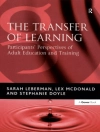In this exciting book, leading fatherhood scholars from Europe and Scandinavia offer unique insights into how to research fathers and fatherhood in contemporary society.
Outlining research methods in detail, including examples of large scale studies, online research, surveys and visual and aural methods, they explore how each approach worked in practice, what the benefits and pitfalls were, and what the wider and future application of the chosen research methods might be.
Covering a wide range of subjects from non-resident fathers to father engagement in child protection, this major contribution to the field also critiques and addresses the notion that fathers, especially young fathers, can be ‘hard to reach’. Essential reading for both students and policy makers in a fast-growing area of interest.
Inhoudsopgave
Introduction ~ Esther Dermott and Caroline Gatrell;
Framing fatherhood: the ethics and philosophy of researching fatherhoods ~ Jonathan Ives;
Qualitative longitudinal research: researching fatherhood and fathers’ experiences ~ Tina Miller;
Researching fathers through surveys: methodological challenges ~ Maria Letizia Bosoni and Sara Mazzucchelli;
Fatherhood research on the internet: methodological reflections from a literature review ~ Lars Plantin and Kristian Daneback;
Researching fatherhood and place: adopting an ethnographic approach ~ Therése Wissö;
Teleconference focus groups with fathers: ‘You’re on the line with…’ ~ Simon Burnett and Caroline Gatrell;
Using visual technologies: young children’s perspectives on fathers ~ Susan Milner and Rita Chawla-Duggan;
Interviewing young fathers: managing ethical risks ~ Carmen Lau-Clayton;
Engaging fathers with family support services: using conversation analysis ~ Jon Symonds;
Mixing methods in fatherhood research: studying social change in family life ~ Allan Westerling;
Capturing the bigger picture with big data: opportunities for fatherhood researchers ~ Esther Dermott.
Over de auteur
Caroline Gatrell is Professor of Organization Studies at the University of Liverpool. Her work centres on work, family and health, which she explores from a socio-cultural perspective.












